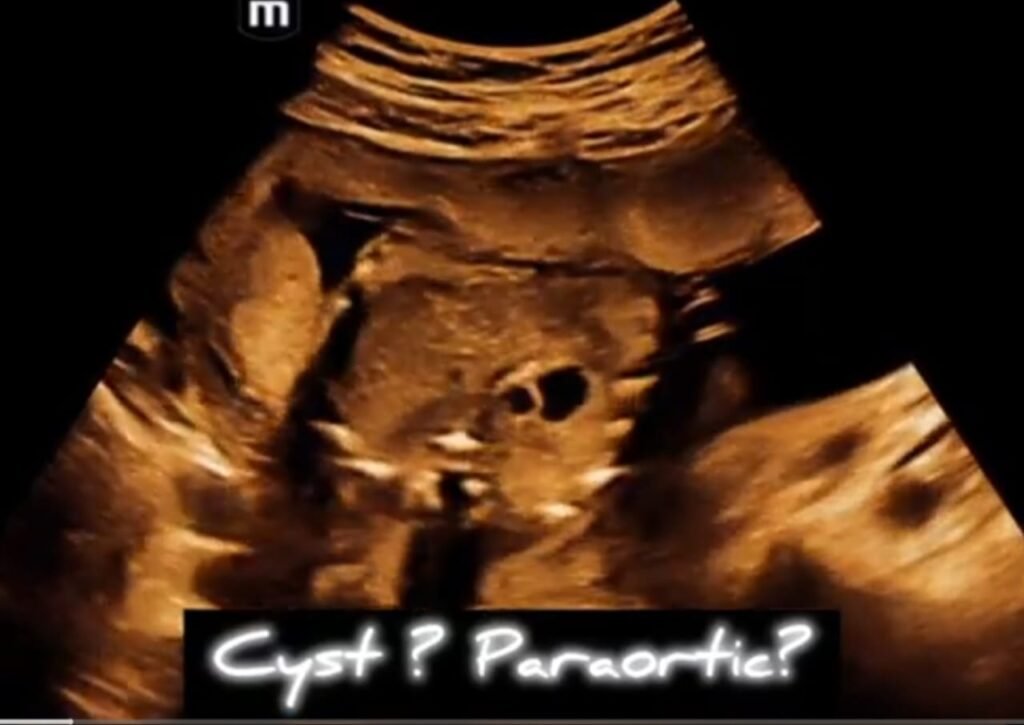Fetal enteric duplication cyst
Pathology
They result from an abnormal recanalization of the gastrointestinal tract. They comprise of a two-layer smooth muscle wall and an internal epithelium of a respiratory or intestinal type. These cysts may or may not communicate with the lumen of the gastrointestinal tract. They can be cystic or tubular (with the latter more likely to communicate with the gastrointestinal tract).
Location
They can occur anywhere along the gastrointestinal tract although a greater predilection towards the ileal region .
Ultrasound
Usually seen as an anechoic cystic lesion within the abdomen that is separate from normal hollow structures such as the bladder and stomach.
Relatively characteristic signs that have been described include :
- double wall sign
- gut signature sign
Occasionally they can also present as an echogenic mass (probably due to hemorrhage).
If there is a complicating bowel obstruction, there may be evidence of polyhydramnios.
prognosis
Recognized complications include:
Differential diagnosis
Considerations on ultrasound for an anechoic mass include:
- fetal omental cyst
- fetal mesenteric cyst
- meconium pseudocyst
- fetal ovarian cyst


